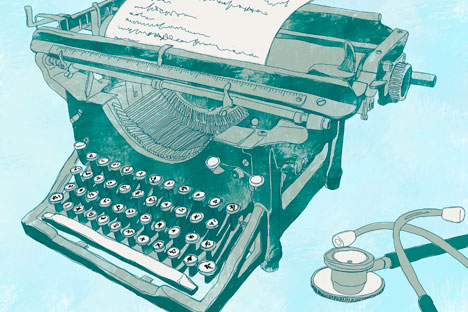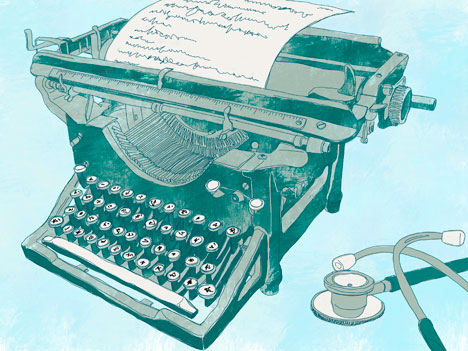Worldwide volunteer network translates for free


Drawing by Natalia Mikhailenko
One of Siberia’s largest translation services, Perevodov, has launched a new social project: volunteers now perform free document translations between Russian and any foreign language, for both children and adults who require medical treatment abroad. The number of such documents is notoriously large, with copious medical notes and case histories – not to mention the voluminous correspondence required by foreign medical centers.
Normally, this kind of translation is a commercial service; rates for translations of medical documents in Moscow translation agencies range from 400 to 1,200 rubles ($13-40) per standard-size page. The price range depends on the scarcity-value of the language from which (or into which) the documents must be translated. The lowest rates, at 400-500 rubles per sheet, go to the English-language translators.
Unlike their colleagues, the group Perevodov Volunteers does all this for free. Arranging medical treatment for someone abroad means that a very large number of documents have to be translated – this is well known. In addition, however, it is often problematic to find out exactly what documentation is needed. As a result, people often have every single document they own translated and send this massive bulk of paperwork abroad. The Perevodov group usually finds that 15 documents or more are needed for every patient.
“When people come to us for price quotes for translations of medical documents, we usually suggest they save their money and approach a volunteer instead,” says Perevodov-Omsk general director and volunteer marketing consultant of the company’s social project, Anastasia Karamzina.
Most often, the group is approached by charitable organizations or by the parents of children who require medical treatment abroad. Requests go into a central databank, and administrators then assign them to translators according to the language involved.
It is interesting to note that the translators participating in the project are located all over the world, working from home. Some are students (their contributions are checked for editing); others might be doctors who can check the texts themselves. The doctors essentially act as expert consultants, and, even if they do not have expertise in a foreign language, they can receive an overview of the medical condition and ensure that the translation conforms to normal medical terminology.
“All of the documents are published on our website. This allows us to control the quality of the translations,” says Karamzina. “Of course, the fact that it’s been done by volunteers is a note of caution for the charities and parents we work with. But in fact, overall, everything is done to a proper standard. If specialists have some particular requirements or commentaries, we take this into account, but this actually happens quite rarely," she said.
"Right now, we have around 150 volunteers located all over the world. Our managers, who are volunteers themselves, oversee all the projects,” Karamzina added.
The biggest problem the Perevodov group faces is a shortage of translators during heavy periods of work. “The main incentive and motivation for the volunteers is philanthropy, along with the opportunity to practice and improve their translating skills. It must be said that finding volunteers for the project isn’t always an easy matter,” Karamzina says. The group uses social networks to try to put the word out.
Perevodov Volunteers collaborates with the worldwide organization Translators without Borders, which works on a similar basis with charitable foundations.
For more information on Perevodov Volunteers, find their Russian-language website here.
First published in Russian in Moskovskie Novosti.
All rights reserved by Rossiyskaya Gazeta.
Subscribe
to our newsletter!
Get the week's best stories straight to your inbox